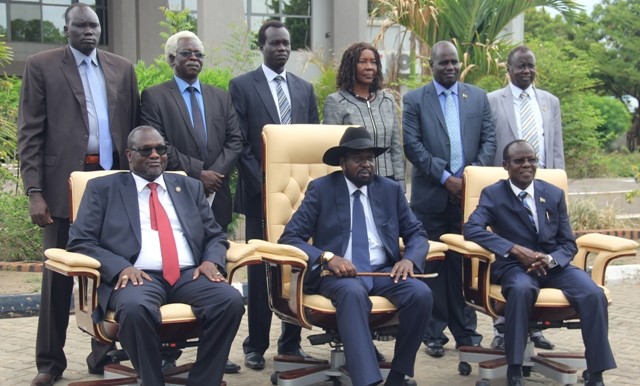The international community reacted to the formation of a new government of unity in South Sudan yesterday. Here is a roundup of views:
The Troika of the United States, United Kingdom, and Norway said they welcomed the “long-awaited formation” of South Sudan’s transitional government, but said it was concerning that the new government has low representation of women.
“While formation of the transitional government is a step forward, with thousands dead, widespread atrocities committed, and millions displaced from their homes during the conflict, this is no time for celebration,” the Troika added.
“The fighting must stop, decisive action must be taken to tackle the economic crisis, and there must be full cooperation with the UN and humanitarian agencies to ensure aid reaches those in need; formal and informal impediments must be removed.”
The three nations said they will support the transitional government “if it shows it is serious about working for the good of the country and implementing the peace agreement in full.”
UN Secretary General Ban Ki Moon said the formation of the new government is an “important milestone in the peace process” and urged South Sudan’s leaders to establish all institutions of transition. He also urged the parties to immediately cease all hostilities.
Canada’s Foreign Affairs Minister Stéphane Dion said his country welcomed the new government and hailed it as an “important step” toward national reconciliation.
“Most urgently, every possible step must be made by the national leadership to put an end to persistent conflict across the country and to give humanitarian agencies unfettered access to those in dire need of assistance,” Dion said.
Dion added it is crucial that the government move quickly to establish accountability measures to end South Sudan’s cycle of violence and impunity.
The European Union said the new government is a “welcome development” which is long overdue. “Now the leadership must work to deliver peace and security, as well as humanitarian access for the people of South Sudan,” the EU said, through its commissioner for humanitarian affair.
The EU said it would support the new government if it works to end persistent conflict, abuse of civilians, violations of international humanitarian law, and corruption.
“The worsening humanitarian situation and the suffering of the people of South Sudan have reached extreme proportions,” the EU said.
“Restrictions on access continue to impede humanitarian operations. The EU expects the Transitional Government to uphold its obligation to respect independent and unhindered humanitarian assistance.”
Pete Walsh, country director for Save the Children said the new government is a “golden opportunity” for the country to devote itself to children’s education for boys and girls.
“The formation of the TGoNU is not an end in itself – it’s the beginning of hard work to reverse the physical and psychological injuries inflicted on millions of children,” Walsh said.
He called upon the new government to honour provisions of Chapter 3 of the peace agrement which says the parties must allow delivery of humanitarian aid, offer special consideration to conflict-affected persons such as women, children, and orphans, and release all child soldiers.




